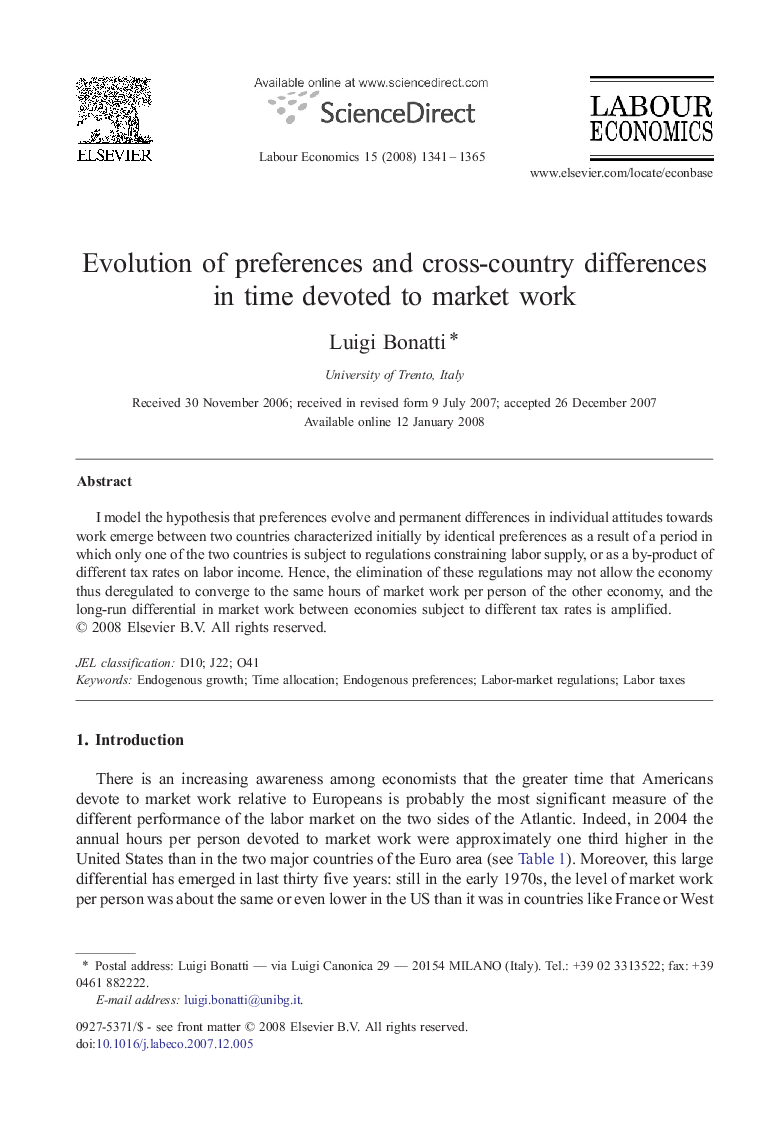| Article ID | Journal | Published Year | Pages | File Type |
|---|---|---|---|---|
| 971724 | Labour Economics | 2008 | 25 Pages |
Abstract
I model the hypothesis that preferences evolve and permanent differences in individual attitudes towards work emerge between two countries characterized initially by identical preferences as a result of a period in which only one of the two countries is subject to regulations constraining labor supply, or as a by-product of different tax rates on labor income. Hence, the elimination of these regulations may not allow the economy thus deregulated to converge to the same hours of market work per person of the other economy, and the long-run differential in market work between economies subject to different tax rates is amplified.
Related Topics
Social Sciences and Humanities
Economics, Econometrics and Finance
Economics and Econometrics
Authors
Luigi Bonatti,
